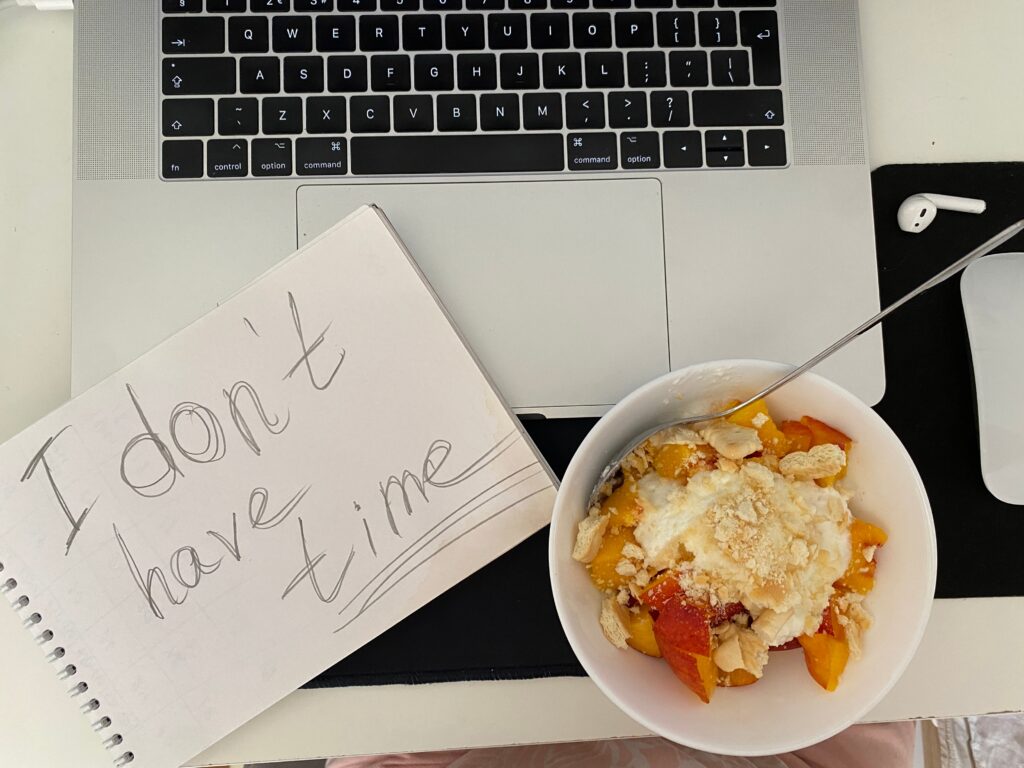For many of us, managing the household mental load, a term describing the invisible labour of planning, organising, and running day-to-day family life, is exhausting. We’re expected to juggle work, family, and social obligations while keeping everyone fed, on schedule, and supported. According to Women’s Agenda’s recent Ambition Report, 73 per cent of women reported experiencing burnout in the past 12 months.
This was also a theme which cropped up across several sessions at Women’s Agenda’s Women’s Health & Wellbeing Summit on Tuesday this week.
It’s little wonder that aside from making us want to hurl bananas at the grocery store, the mental load also has a direct impact on our energy, wellbeing, and nutrition as women; something Dietician Susie Burrell wants addressed.
“Eating well and food prep becomes another task on an already endless list,” Burrell explains. “Many busy women sacrifice their own health to care for others, or they simply skip meals because it feels too overwhelming.”
Burrell encourages women to rethink nutrition not as an extra burden, but as a tool for empowerment. “Good nutrition doesn’t need to be complicated or time-consuming. There are convenient, healthy options that make eating well achievable without adding to the load.”
The cost of invisible labour
Beyond preparing meals, women often think ahead to grocery lists, kids’ lunches, and family preferences, making countless decisions daily. “This extra cognitive load sees women often putting themselves last,” Burrell says. “They eat kids’ foods at dinner, or grab whatever is convenient, even though their bodies need nutrient-rich meals.”
This pattern has tangible consequences. Many Australian women are deficient in key nutrients like iron, vitamin D, magnesium, zinc, and omega-3s. These deficiencies, combined with over-reliance on processed carbs and caffeine, contribute to fatigue, mood fluctuations, and lowered resilience.
Nutrition as resistance to burnout
Burrell frames nutrition as not just self-care, but a form of resistance to the systemic pressures women face. “Eating well is one of the simplest ways to prepare for daily life,” she says. “It supports energy, metabolism, mood, and digestive health. Knowing quick, nutrient-rich options helps women protect their wellbeing without needing to be perfect.”
She critiques the “gym-bro” style meal prep often glorified on social media: hours of chicken and rice in plastic containers. “For most women, this is unrealistic and stressful. The goal should be to reduce stress, not add to it.” Instead, she recommends accessible, family-friendly options: pre-cut or frozen vegetables, quick-cook proteins like Tassal Salmon Fillets or chicken strips, and ready-to-go meals such as dumplings or crumbed fish, which can be on the table in 10–20 minutes.
Practical swaps for busy lives
For those of us who eat between meetings, in the car, or while juggling kids (likely every person reading this), keeping nutrient-rich snacks on hand: tuna and crackers, legume chips, cheese and crackers, or protein yoghurts can help keep things on track. These small choices help maintain energy and prevent nutritional gaps.
Making healthy eating sustainable
Ultimately, Burrell emphasises that sustainable nutrition is about convenience and equity, not perfection. “For busy women, it’s about knowing the shortcuts. Pre-made salads, BBQ chicken, frozen vegetables, and quick-cook proteins—that make healthy meals achievable in minutes.”
By reframing nutrition as practical self-care rather than another chore, it’s possible for us to maintain energy, support our health, and manage the mental load more effectively. “Healthy eating doesn’t have to be another thing on the list,” Burrell says. “It can be a simple, empowering act of caring for yourself while you care for everyone else.”


